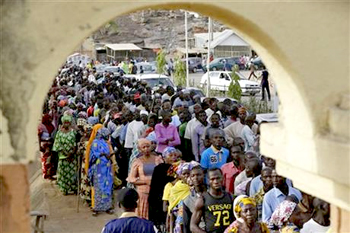Islamabad/Dhaka, May 25: The coronavirus pandemic and lockdowns coupled with travel restrictions and social distancing norms have muted the Eid celebrations in Pakistan and Bangladesh as worshippers in the two Muslim-majority countries marked the end of Ramzan in strictly-regulated prayer congregations.
A large number of people in the two countries were forced to stay indoors on the occasion of Eid al-Fitr, marking the end of the fasting month of Ramzan, due to the fears of contracting the novel coronavirus which has killed nearly 3.5 lakh people and infected over 5.4 million across the world.
In Pakistan, the government has issued strict instructions to observe social distancing while offering Eid prayers and asked people to avoid visiting relatives and hosting parties.
As the railways remained closed, many people could not travel to their hometowns for the most important festival.
Eid congregations were held at open places, mosques and Eidgahs in all major cities and towns while following strict standard operating procedures (SOPs) of social distancing and other precautionary measures. But in some areas, the people did not adhere to the SOPs and were seen thronging to their favourite shops to celebrate Eid.
Pakistan Prime Minister's Special Assistant on Health Zafar Mirza on Friday said the deadly infection would continue to multiply if precautions are not taken.
Earlier this month, the government announced the lifting of the countrywide lockdown imposed to curb the spread of the COVID-19 in phases, even as infections continued to rise in the country.
Pakistan's coronavirus cases on Monday reached 56,349 with 1,748 new patients while the death toll climbed to 1,167 after 34 people lost their lives in the last 24 hours.
The trajectory showed that the number was steadily going up with authorities fearing a rise in cases in the wake of the easing of lockdown before Eid.
But Prime Minister Imran Khan cited the economic havoc the virus restrictions had wreaked on citizens as the reason behind the decision to ease the restrictions.
He urged Pakistanis to forgo the traditional Eid festivity in view of the hundreds of fatalities caused by the coronavirus and the lives lost in Friday's plane crash in Karachi.
Ninety-seven people, including nine children, were killed and two passengers miraculously survived a fiery crash when a Pakistan International Airlines plane with 99 travellers on board plunged into a densely populated residential area near the Jinnah International Airport.
Most of the victims were travelling home to celebrate Eid.
In Bangladesh, millions of Muslims joined the strictly-regulated prayer congregations across the country.
Thousands of worshippers attended the prayer services at the Baitul Mukarram National Mosque in Dhaka while following the health and social distancing protocols to limit the spread of the coronavirus, bdnews24.com reported.
Despite the government directive for children and senior citizens not to participate in Eid prayers, many children and people aged over 60 attended the Eid prayers. Although social distancing rules were maintained to a large extent, people were seen flouting the norms, the report said.
As per the government order, no Eid congregation will be held in an open space, but people can perform the Eid prayers in mosques. However, everyone coming to the mosques for prayer must wear a mask, follow social distancing and other hygiene rules, said Islamic Foundation Secretary Kazi Nurul Islam.
On Sunday, Bangladesh reported 28 new fatalities, the highest single-day increase, bringing the death toll to 480.
The number of coronavirus cases in the country rose to 33,610 after 1,532 people tested positive on Sunday.






Comments
Add new comment